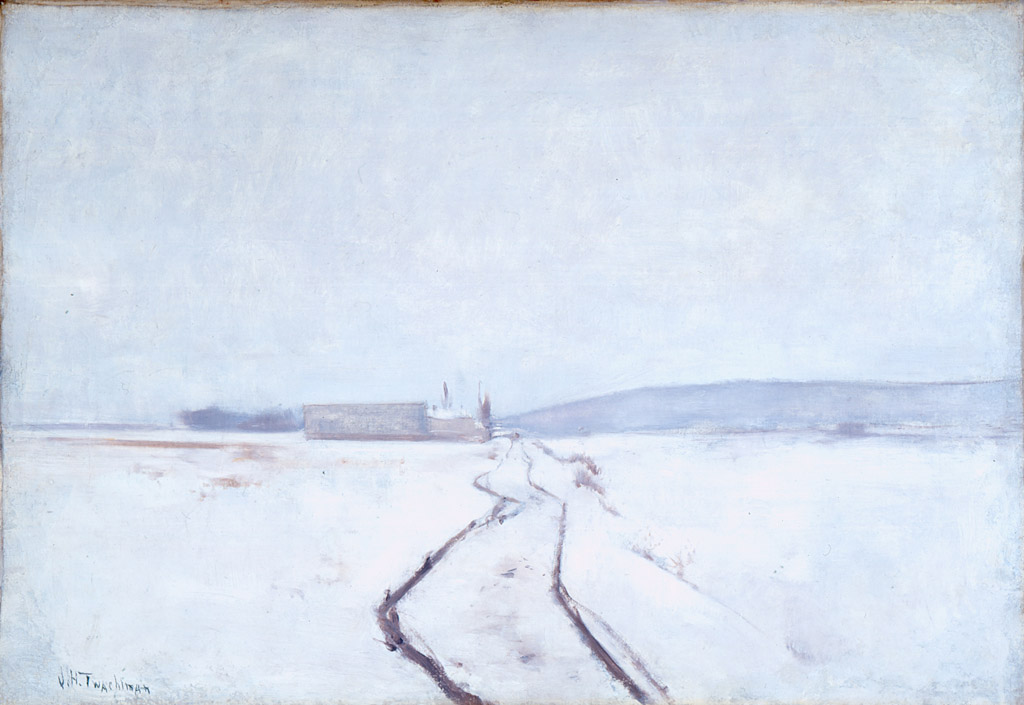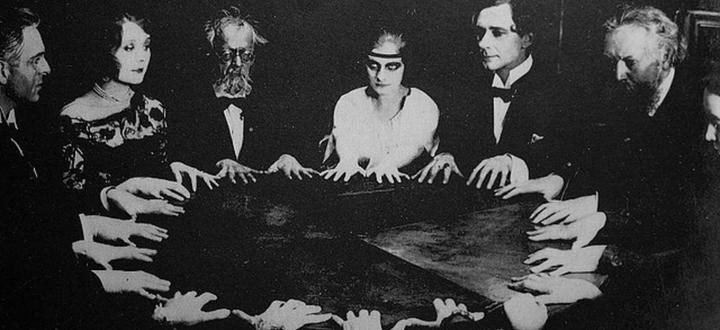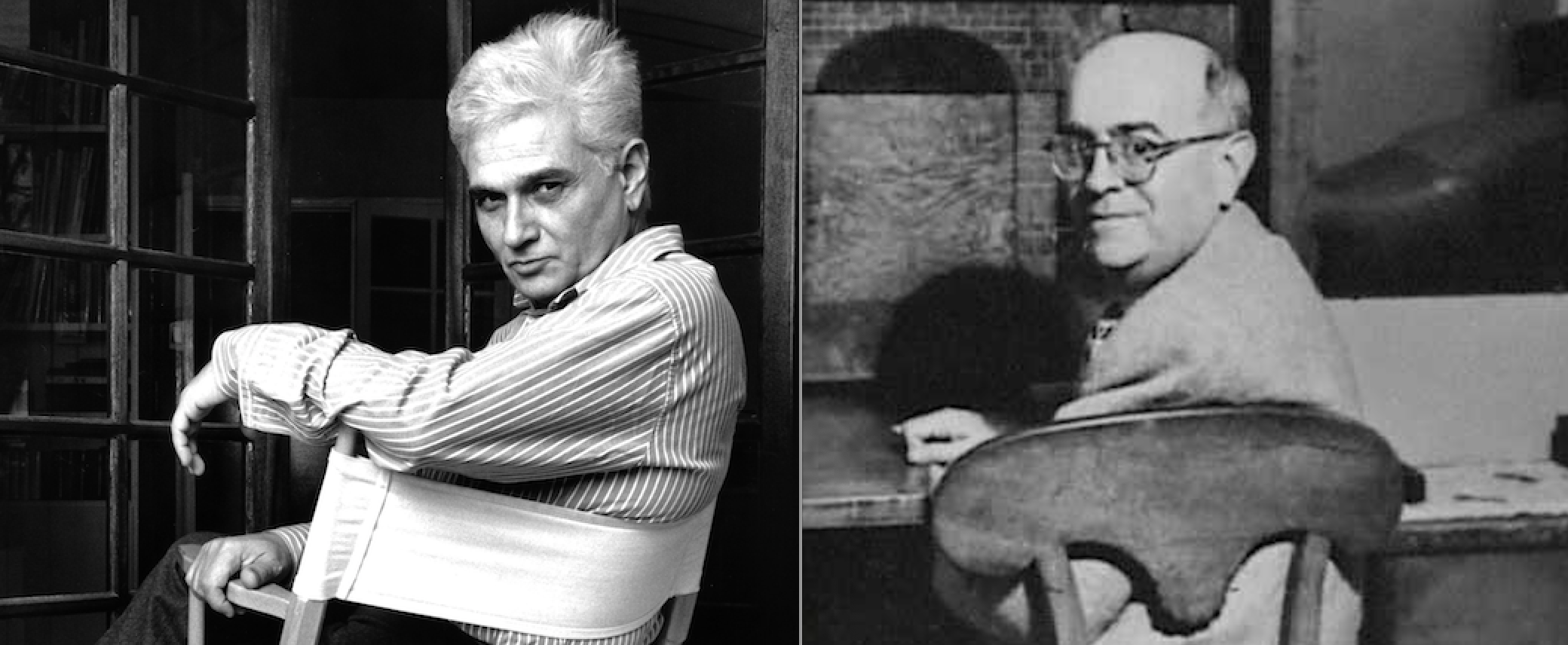- 4.2
If the term “post-structuralism” has ever referred to any titles in particular—if post-structuralism, that is, has had not just canonical texts, but name-generating ones—then surely it refers to the attacks that Derrida launched against Claude Lévi-Strauss in 1966 and 1967. “Structure, Sign, and Play” goes after “structural or structuralist thought” in its very first sentence; its opening claim is that “structure” is as old as the West, an encumbrance, therefore, an unthinking conceptual reflex, one more bad habit picked up in childhood, the philosophical equivalent of chewing your nails. This “would be easy enough to show,” we read in the lecture, which formulation is Derrida’s preferred way of not showing something.[i] It’s not clear, anyway, that Derrida is right about this. An etymological dictionary will tell you that the word “structure” is Latin, from struere “to build,” and so not, in fact, ur-Western—old, sure, but not Aegean-old. It will also tell you that “structure” goes back to the Indo-European root stere-, meaning “to spread or stretch out,” which also gives us Greek stronymi or “strew,” in which case we would have to conclude that the word “structure” has “strewing” as one of its closer cousins. Structure and dissemination are thus not the antitheses that deconstruction takes them to be, but in fact variants of one another, two different ways of naming a collection of scattered points. Anyone wanting to toss out the one on the grounds of its metaphysical antiquity would, to be consistent, have to discard the other, as well.
The attack on Lévi-Strauss then continues in Of Grammatology, where the anthropologist serves as Derrida’s one great example of a living, breathing gramophobe—all the evidence he has, really, for the claim that a writer could still in the late twentieth century rise to prominence by systematically dishonoring his own medium, that someone trained as a philosopher could take to print in ink-loathing praise of peuples sans écriture. Lévi-Strauss had reported seeing an indigenous man in Brazil, living far from white settlement, wielding fake writing as a weapon against his fellows, trying to bolster his authority over them by pretending to read wordless scratchings on a page. Reflecting on that scene some days later, he had concluded that this incident revealed something important about all writing: namely, that some of its political effects depended not at all on what it said, but merely on the performance of the saying; that writing communicated the power of the writer before it communicated anything else. You can tell that the power of the writing is independent of its words because it seems to operate even when there aren’t any words.[ii] Such is the argument that Derrida was out to defeat. And to the extent that Lévi-Strauss was uniformly regarded as structuralism’s standard-bearer, that defeat would do more than any other event in recent French philosophy to bring into view the possibility of what we might call thought after Lévi-Strauss and what we have called post-structuralism, which is the name we give to sundry radical French philosophers when assimilating them to Derrida.
But then if you’re going to call deconstruction and the rest “post-structuralist,” you also have to let “structuralism” suffice as a descriptor for Lévi-Strauss’s work. This means, in turn, that if you emphasize other features of Lévi-Strauss’s system—or if you simply recognize other keys to Lévi-Strauss’s renown in the mid-1960s; other features, I mean, of his public profile—then our conception of deconstruction will shift accordingly, and maybe our conception of post-structuralism, as well, should it be shown to have been surpassing other things, too, in the process of outstripping la structure.
Anyone with enough time can confirm through a course of reading the broad outlines of Lévi-Strauss’s philosophical project. The trick to reading Lévi-Strauss is to realize that he was, despite himself, a big-historical thinker. Structuralism, officially anti-historical, houses within itself a whopping-great story about What Has Happened to the World Over Time, and it is these disavowed historical claims that underwrite its rejection of history in favor of myth. Those claims are by now pretty familiar. Lévi-Strauss begins with the anti-humanist theory of (European) man that we associate above all with Heidegger and the Frankfurt School: of Promethean man, in other words, an Ahabian humanity driven to master the world, all-conquering, determined to murder the very ocean, self-subordinating, too, constructing the technologies and institutions that “destroy innumerable living forms,” and then capturing itself in its own disastrous machinery.[iii] Many have come to the conclusion that there is a basic ambiguity in Lévi-Strauss’s arguments or that he wants to have it both ways. No French writer of his generation wrote as ardently against ethnocentrism or against the late Victorian habit of ranking the world’s peoples, and if we take Lévi-Strauss at his word, then we shouldn’t be able to rank the West any more than we can rank the Bantu or the Inuit. Or rather, we shouldn’t be able to demote the West. European civilization should settle in as just one more culture among others, with conventions of its own, cognitive customs (called “science”), narrative customs (called “history”), and so on. But there is, of course, a second sense in which Lévi-Strauss’s structuralism takes European culture to be unique, after all—uniquely diseased, uniquely alienated, estranged from the fundamental ways of relating to others and to the non-human world that are preserved by tribal thought. Structuralism was thus energized by a remarkable combination of features: a Frankfurt-style critique of instrumental reason—or a Heideggerian critique of productivism—grafted upon an anthropologist’s regard for indigenous ethics, though it’s not hard, of course, to see how these would go together: the comprehensive rejection of European thought sponsors a rigorous survey of the non-European kind.
The subtle point about structuralism, then, is that it meant not only to report on the thinking of pre-literate societies, but also to replicate that very thought for the people of Europe and North America—to teach someone who would otherwise be reading Salinger and Nabokov to think again like an indigenous person. It’s not just that Lévi-Strauss was an eco-thinker in the ordinary sense, though he could usefully be revisited under that rubric, given that he was trying to spell out a conservationist approach to thinking itself, an approach to thought modeled on the conduct of people who live amidst scarcity, on the recycler’s approach to objects, therefore, in which thought can be reconditioned and repurposed and so does not require endless innovation or concept-production, where you sift through the intellect, take what you need, combining one fistful of concepts and images with scraps of other such, cinching together out of the leavings of former reflections a not-exactly-new thought-object better suited to the task at hand. The idea, at least, is that such tinkering is what thought actually does, only we don’t know this because we chronically overestimate the mind’s novelty and independence. But then equally it is what thought should do—adapt, sort through its already existing riches—rather than engineer a single intellectual innovation determined to drive all others from the field. Structuralism, which is another name for pensée sauvage, offers itself as the very model of extensive and non-hierarchical cognition, the thinking of concrete possibilities, permutations within generous limits, social and cultural variety, solutions other than the one we opted for.
All I mean to say is that it is important to recall just what Derrida, in 1967, was attacking by attacking Lévi-Strauss. A person, of course, would have to have read deeply in Lévi-Strauss to put a résumé together.[iv] But it is enough to thumb through his UNESCO writings—among the most widely read anti-racist tracts to come out of Europe after the war—to find sentences like this: “There is no justification for asserting that any one race is intellectually superior or inferior to another.” Or this: “The original sin of anthropology … consists in its confusion of the idea of race, in the purely biological sense, … with the sociological and psychological productions of human civilizations.” Or this: “In actual fact, there are no peoples still in their childhood; all are adult, even those who have not kept a diary of their childhood and adolescence.” Or again this: “We may note that acceptance of the Western way of life, or certain aspects of it, [by non-Westerners], is by no means as spontaneous as Westerners would like to believe.”[v] Alternately, a person reading Tristes Tropiques in the 1950s might have remarked that in its opening chapters Lévi-Strauss violates his own chronology in order to let the reader know that he was friends with André Breton, with whom he was in exile in New York, the two men having met unexpectedly on the anti-fascist refugee ship that carried them both from Marseilles to Martinique.[vi] This early French reader, moreover, would likely have known something that a belated Anglo reader could easily miss—that the Surrealists were themselves ardent anti-colonialists; that anti-colonialism, more than a rather generic united-front communism, was the distinguishing drift of Surrealist politics—which means, in turn, that when Lévi-Strauss drew attention to the Breton circle as one of Tristes Tropiques’s more relevant contexts, he was requesting that his readers see that book as an extension of the French avant-garde’s repudiation of high Europe. Structuralism asks to be seen as a restaging of a Surrealist action from 1925, in which Breton and his friends disrupted a Parisian literary banquet by sneaking into the hall and tucking into each place-setting a flyer that began: “We profoundly hope that … colonial insurrections will annihilate this Western civilization whose vermin you defend. … We take this opportunity to dissociate ourselves publicly from all that is French.” Read in this context, Lévi-Strauss’s output looks like a multi-volume companion piece to the exhibition that the Surrealists mounted in 1931, called “The Truth about the Colonies”—totally direct that exhibition was, no poetry needed, not Surrealist, but realist. One could go on. A ‘60s-era reader of Tristes Tropiques—Derrida, say, when preparing the Grammatology—might have recalled the much discussed Manifesto of the 121, co-written by a young Surrealist and revised by Breton himself, calling for organized resistance to the French government in Algeria and aid for the independence movement there.[vii] One detail in particular stands out: It was on that journey across the Atlantic, alongside Lévi-Strauss, that André Breton first made the acquaintance of Aimé Césaire, who became Surrealism’s most important exponent outside of Europe and who was already publishing a journal called Tropiques, which then furnished Lévi-Strauss with half his title: Tristes Tropiques, Troubled Tropics, Tropics of Woe, Despairing Equator.
Deconstruction, we can now say, came into the world as an attack on anti-colonial anthropology. Not that Derrida was the first person to disagree with Lévi-Strauss—hardly. His method had already faced a strong challenge from the Left, where it was said that structuralism was a device for downplaying conflict, for minimizing the fractures and struggles that agitate and occasionally transform even non-literate and stateless societies. Many readers on the Left have always felt that structuralism was guilty of overstating the ability of culture, art, or myth to produce stability in a society by imaginatively reconciling its real antagonisms.[viii] But then Lévi-Strauss had also faced a challenge from the Right, which accused him of being a self-loathing Westerner driven by anti-civilizational prejudice, a temperamental and aestheticized primitivism that would say anything, opportunistically and unaccountably, in order to make tribal people look better than the Belgians or the Lyonnais.[ix]
It is this second line of argument that Derrida took up in 1967. What we’ll want to note first is that indigenous peoples are never not at issue in Of Grammatology, from beginning to end, albeit in ways that can be a little hard to spot. Indians don’t appear by name until the chapter on Lévi-Strauss, but they hang silently over the entire book, since they can’t help but be Derrida’s test case, over and over again, for his signature claim that there have never existed societies without writing. Take the following sentence: “Even before it is linked to incision, engraving, drawing, or the letter…, the concept of the graphie [the unit of a possible graphic system] implies the framework of the instituted trace, as the possibility common to all systems of signification.”[x] The word to pay attention to is before: Even before the letter, before writing in the ordinary sense. Derrida has to grant that there have existed oral societies even in the process of negating that claim. The same holds true for the the prefix arche- in the term arche-writing; it, too, points to indios and islanders. In some contexts, of course, arche- just means “very ancient” or the “first,” and if that were true here, arche-writing would refer to “the rudiments of writing” or “ur-script,” hence maybe to Babylonian accounting methods, except Derrida exploits a permanent ambiguity in perceptions of the primal, which ambiguity follows on from the simple observation that the prototype of a given thing is often unlike that thing’s common form, sometimes to the point of unrecognizability. The earliest version of x both is and isn’t x. What Derrida also calls “originary writing” thus carries its own negation inside itself: writing-before-writing, which is also writing-that-is-not-writing, which is also indigenous writing or the writing-of-people-who-don’t-read. If you were to substitute “Indian” for “arche-“ every time you saw it, it would become rather easier to reconstruct Derrida’s historical claims: arche-writing, Indian writing, un-writing.
The first of Derrida’s complaints is thus easy to guess: Lévi-Strauss is to be rebuked for stupidly believing that the Nambikwara didn’t know about writing until he showed up with his notepad. If you’ve read any Derrida at all you will have seen this thesis coming, though even in that case, the “Violence of the Letter” will give you a chance to confirm your hunch that Derrida can make his signature argument only by proclaiming all marks to be writing: vegetable-dye tattoos, zigzags on squashes, wolves urinating on rocks. The idea is that the precolonial Nambikwara could have gained insight into writing by watching a jaguar claw significance into tree bark.[xi]
It is, however, Derrida’s second argument, the one about violence, that you might not have seen coming. Lévi-Strauss, after all, had wanted to specify the forms of oppression that Europeans have inflicted on the non-European world, and to point out that this oppression was not just material, but cultural and cognitive, as well. And to this Derrida replies that the violence at issue was not Europe’s fault, that colonized people were already oppressed before their conquerors arrived, overcome from the start by “the originary violence of language which consists in … classifying, in suspending the vocative absolute”—the direct address—and so using words to subsume the world in generalities.[xii] Here, at the very latest, we are forced to conclude that Derrida has fundamentally reversed tack on radical philosophy’s usual wildcat genealogies of “metaphysics” or “Western thought.” For if deconstruction is right, the problem with “Western thought” is not its addiction to theoretical, philosophical, or scientific knowledge (which has its home in writing &c); nor are we meant to contemplate the ways in which writing everywhere produces new forms of hierarchy: scribal elites, ranked degrees of literacy, preferred positions for the hyper-literate, &. The most serious problem with “Western thought” is that it encourages one to believe that there is also something other than “Western thought.” The polemical thrust of early deconstruction in its struggle with anthropology boils down to the idea that there is no position outside of the violence perpetrated by meaning-making people from which one might in good conscience struggle against London or Paris.
This is not an argument that will withstand even basic modes of scrutiny. One can, of course, indict Lévi-Strauss on charges of a generic Rousseauvianism. If you’ve already decided that Rousseau was a chump and Alp-climbing hippie, or if you think that anyone who prefers indigenous people on any grounds is indulging in so much noble savagery, or if you think that smart and convivial Indians are only ever stock characters, then nothing Lévi-Strauss says is going to change your mind. But the details of Derrida’s objections won’t hold up. Nor is this a subtle point. It’s enough to go and read Tristes Tropiqes to see that Derrida is wrong about Lévi-Strauss. The big point should be apparent, in fact, to anyone who knows anything about structuralism, even second-hand. Lévi-Strauss, after all, is not dreaming of a paradisical spoken language in which words were still full, directly attached to the world’s furniture, capable of presence. Quite the contrary: He accepted Saussure’s position, which Derrida also misrepresents on this point. The most basic move of structuralist anthropology was simply to extend the Saussurean account of language to tribal societies, precisely in order to defeat the idea that language worked differently for indigenous people—to show that tribal people, too, existed in culture and not nature, that they were semiotic peoples, all peoples being semiotic, intensely and intricately coding the world in language via differences that were not positivities. When Derrida attributes to Lévi-Strauss the opposite position, he is simply inventing things that his rival does not say.
It’s even worse on the matter of violence, because the evidence could not be clearer. Derrida says repeatedly that Lévi-Strauss is pushing some stupid myth in which native Americans are fundamentally peaceful, which then allows the anti-colonial anthropologist to claim that white people introduced violence to the Americas. And again, this simply isn’t what Lévi-Strauss is claiming. In the chapters immediately surrounding “The Writing Lesson,” Lévi-Strauss describes an orphan trampled at a dance; “children often hitting out at their mothers”; a little girl who says: “When I’m big I shall kill all the wild pigs and all the monkeys”; hunters who think they will be reincarnated as predatory cats; and those same hunters’ belief that any woman who pries into the secret rites of men “should be struck down at once.” He also notes “the speed with which [the Indians] pass from cordiality to hostility.” He recounts the making of poison. He even describes how the Nambikwara, by their own admission, “murdered” some Protestant American missionaries. It’s just that Lévi-Strauss asks us not to judge them for this, construing that killing as a spontaneously anti-colonial act, and so shrugging good riddance to this Presbyterianism-on-the-march, even though he is pretty sure at one point that his hosts are about to kill him, too.[xiii] That last episode, where Lévi-Strauss anticipates his death at Indian hands, appears in “The Writing Lesson” itself. Nor does Lévi-Strauss then turn around and incongruously describe his hosts as pacifists. He doesn’t say much more than that he liked them—that they were “charming,” that they goofed around a lot, that they seemed to enjoy each other’s company.[xiv] Post-structuralism’s founding arguments rest on errors of the most elementary kind.
[i] See “Structure, Sign, and Play” (1967), in Writing and Difference, translated by Alan Bass (1978), (London: Routledge, 2005), pp. 351-370, quotations at p. 351.
[ii] See “The Writing Lesson” in Tristes Tropiques (1955), translated by John Russell (New York: Criterion, 1961), pp. 286-297.
[iii] Lévi-Strauss, Mythologiques, III, L’Origine des Manières de Table (Paris: Plon, 1968), p. 22.
[iv] In addition to Tristes Tropiques, a person would need to have read The Savage Mind (1962), (Chicago: University of Chicago Press, 1966) and the late talks on Myth and Meaning (New York: Schocken Book, 1979). It would also help to read David Pace’s Claude Lévi-Strauss: The Bearer of Ashes (London: Routledge, 1983) and the biography by Patrick Wilcken (New York: Penguin, 2010).
[v] Levi-Strauss, Race and History (Paris: UNESCO, 1952), p. 5 (quotations #1 and #2), p. 19, p. 31.
[vi] Lévi-Strauss describes his meeting André Breton in Tristes Tropiques, p. 26.
[vii] On the politics of Surrealism, see Mark Polizzotti’s Revolution of the Mind (New York: Farrar Straus, 1995), pp. 235-240 and p. 601; also Jody Blake’s “The Truth about the Colonies, 1931: Art indigène in Service of the Revolution” in Oxford Art Journal 25:1 (2002), pp. 35-58.
[viii] See for instance Maurice Godelier’s “Myth in History” in New Left Review 1.69 (1971), pp. 93-112.
[ix] See esp. Roger Caillois’s two-part essay “Illusions à rebours,” in La nouvelle nouvelle revue française, December 1954, pp. 1010-1024 and January 1955, pp. 58-70.
[x] Of Grammatology, p. 46.
[xi] See also Points, p. 84.
[xii] Of Grammatology, pp. 111-2.
[xiii] Tristes Tropiques, p. 274; p. 276; p. 281; p. 282-3; p. 284-5; p. 290.
[xiv] ibid., p. 285.
I found the photograph at the top in National Geographic.










